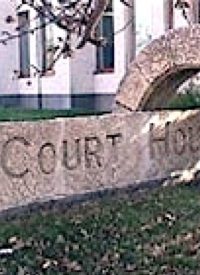
A high court in Saskatchewan has ruled that marriage commissioners in Canada may not refuse to perform weddings for same-sex couples, even if their religious beliefs prohibit homosexual relations.
In 2005, when Canada first legalized same-sex marriage, a homosexual man identified by the court as “M.J.” filed a complaint with the Saskatchewan Human Rights Commission after a marriage commissioner refused to marry him and his homosexual partner.
At first the commissioner, Orville Nichols, congratulated the man, but when he discovered the union was homosexual in nature, he informed M.J. that he couldn’t perform the ceremony because same-sex marriage volated his religious convictions.
The human rights court ruled that as an agent of the state Nichols did not have the right to refuse service based on his personal beliefs, and ordered him to pay M.J. $2,500 in compensation.
Nichols appealed the court’s ruling, arguing that his rights should be protected under Canada’s Charter of Rights and Freedoms spelled out in the country’s constitution.
“But in a 39-page decision dated July 17 [2009],” reported the CBC, “Court of Queen’s Bench Justice Janet McMurty dismissed Nichols’ argument, concluding that the human rights tribunal was ‘correct in its finding that the commission had established discrimination and that accommodation of Mr. Nichols’ religious beliefs was not required.’ ”
That verdict sent the case to the Saskatchewan Court of Appeal, which ruled on January 10 of this year that marriage commissioners must perform same-sex marriage ceremonies, even if doing so violates their religious beliefs.
Specifically the five-member court rejected a pair of proposed amendments to Canada’s Marriage Act that were designed to protect the religious and conscience freedoms of those who objected to homosexual marriage.
One of the amendments would have allowed marriage commissioners appointed before the legalization of homosexual marriage to refuse to perform same-sex ceremonies, and the other would have allowed any commissioner that option.
But the court ruled unanimously that either amendment, “if enacted, would violate the equality rights of gay and lesbian individuals.”
Nichols, who is a devout Baptist, said he was devastated by the ruling. “I was hoping we’d win, and I thought if we would lose we wouldn’t lose on a 5-0 judgment,” he told a Canadian radio program.
One of the five justices, Robert Richards, wrote in explanation of the verdict that the “mistreatment of gay and lesbian individuals is well known. They have been able to recently claim the right to marry only after traveling a very difficult and contentious road. Accordingly, putting gays and lesbians in a situation where a marriage commissioner can refuse to provide his or her services solely because of their sexual orientation would clearly be a retrograde step — a step that would perpetuate disadvantage and involve stereotypes about the worthiness of same-sex unions.”
The court asserted that marriage commissioners “do not act as private citizens when they discharge their official duties. Rather, they serve as agents of the Province and act on its behalf and its behalf only.” It added that allowing commissioners to act on their personal convictions “would undercut the basic principle that governmental services must be provided on an impartial and non-discriminatory basis.”
But Faye Sonier, legal counsel for the Evangelical Fellowship of Canada (EFC), countered, “To argue that only citizens working in the private or non-profit sectors have Charter protections is ludicrous and contrary to our human rights and employment law. Canadian case law is clear — regardless of where you work in our nation, you have constitutional rights as enshrined in the Charter.”
Scott Reid, a Conservative Party member of Canada’s House of Commons, warned that the ruling sets a dangerous precedent for America’s neighbor to the north. “To think that a court has ruled that a man can be forced to do something that goes against his religious beliefs or else face a Human Rights complaint and a heavy fine is unconscionable,” he was quoted by canadafreepress.com. “In effect, this court has ruled that the freedom of conscience is less important than the equality rights from Section 15 of the Charter of Rights and Freedoms.”
Reid argued that the Canadian judges got their ruling backwards. “The right of that marriage commissioner to refuse to violate his personal moral beliefs is more important than the right of one gay couple to demand to be married by that particular marriage commissioner,” he said. “Another marriage commissioner who would be willing to perform the ceremony could be handily found.”
Another Canadian politician, Randy Hillier of Ontario’s provincial parliament, said that the case is not a matter of religion but of “the courts’ intrusion over one’s moral conscience, and their unjust and unmitigated failure to protect an individual’s freedom in its imposition of a collective tolerance.”
Photo: Court house in Regina, Saskatchewan



